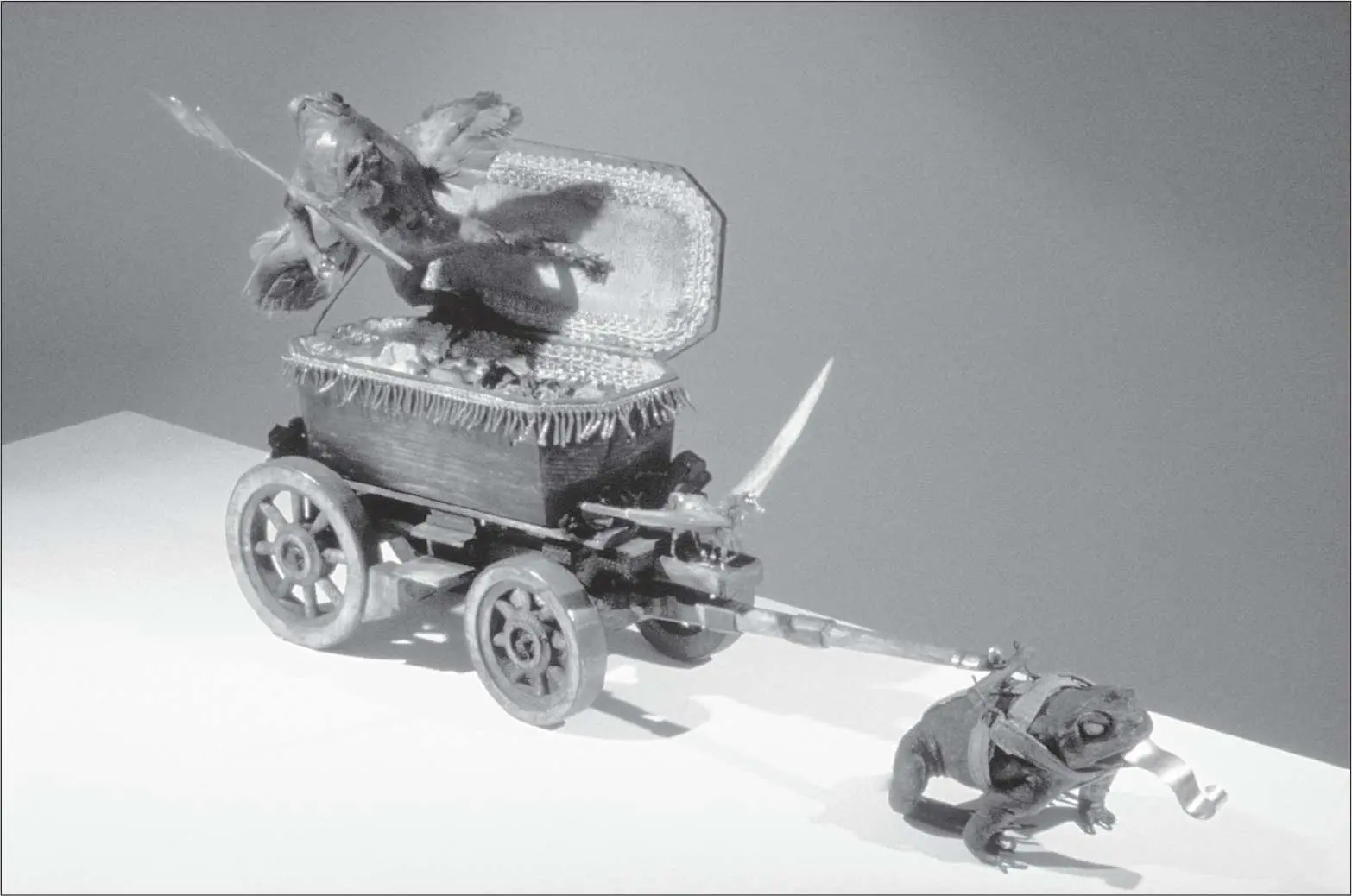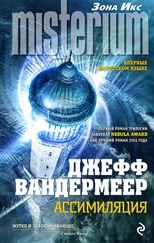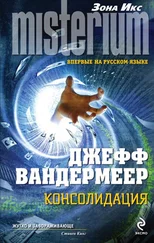Джефф Вандермеер - The Thackery T. Lambshead Cabinet of Curiosities
Здесь есть возможность читать онлайн «Джефф Вандермеер - The Thackery T. Lambshead Cabinet of Curiosities» весь текст электронной книги совершенно бесплатно (целиком полную версию без сокращений). В некоторых случаях можно слушать аудио, скачать через торрент в формате fb2 и присутствует краткое содержание. Жанр: Фэнтези, на английском языке. Описание произведения, (предисловие) а так же отзывы посетителей доступны на портале библиотеки ЛибКат.
- Название:The Thackery T. Lambshead Cabinet of Curiosities
- Автор:
- Жанр:
- Год:неизвестен
- ISBN:нет данных
- Рейтинг книги:5 / 5. Голосов: 1
-
Избранное:Добавить в избранное
- Отзывы:
-
Ваша оценка:
- 100
- 1
- 2
- 3
- 4
- 5
The Thackery T. Lambshead Cabinet of Curiosities: краткое содержание, описание и аннотация
Предлагаем к чтению аннотацию, описание, краткое содержание или предисловие (зависит от того, что написал сам автор книги «The Thackery T. Lambshead Cabinet of Curiosities»). Если вы не нашли необходимую информацию о книге — напишите в комментариях, мы постараемся отыскать её.
The Thackery T. Lambshead Cabinet of Curiosities — читать онлайн бесплатно полную книгу (весь текст) целиком
Ниже представлен текст книги, разбитый по страницам. Система сохранения места последней прочитанной страницы, позволяет с удобством читать онлайн бесплатно книгу «The Thackery T. Lambshead Cabinet of Curiosities», без необходимости каждый раз заново искать на чём Вы остановились. Поставьте закладку, и сможете в любой момент перейти на страницу, на которой закончили чтение.
Интервал:
Закладка:
The latter two conclusions are no doubt unnecessarily alarmist, but what little we do have of Ms. Abendroth’s thoughts on Mehler indicates beyond any doubt that she found him unsettling and relentless in his attention—behaviour that would only intensify when he began publicly criticising her work:

Ron Pippin’s model of Abendroth’s Die Auferstehung des Frosches (Frog Resurrection)
Ms. Abendroth is certainly talented, and it is therefore all the more lamentable that she should turn her not inconsiderable skill to grotesque drolleries and fantastical nonsense. Her lines bespeak a steady hand, but her vision is wobbly; her choice of subjects speaks clearly of an immaturity of spirit, a child’s mind in a woman’s body. In this, it is true, she is not far different from most of her sex, but progress being what it is one has come to expect better of our city’s women, and consequently one holds them to the highest possible standard. 3
Taken alone, such comments might not, perhaps, have had quite the effect they did on Ms. Abendroth—but it was sadly at this time that her mother passed away, likely from some form of cancer, and was followed shortly thereafter by her father. Not very long afterwards, Ms. Abendroth moved into Ms. Nadel’s home (as she, too, was unmarried), which should have been a comfort to the newly orphaned artist but made her rather an easier target for Mehler’s savagery:
One could perhaps surmise that Ms. Abendroth’s art is the stunted result of a woman kept incomplete: were she to marry, to have a child of her own, it is possible that she would no longer present herself as one in her work. One suspects, however, that Ms. Abendroth thumbs her nose at such decency, preferring her twilight world of mannish actresses, spear-shaking frogs, and singing fish to the land of the living. 4
It seems likely that Mehler was jealous of Ms. Nadel and Ms. Abendroth’s intimacy, though Nussbaum’s suggestion that he was a rejected suitor of one or both of them seems to err on the side of sensationalism. 5
Effects on Abendroth and Her Work: A Mysterious End Game
At any rate, it was Ms. Abendroth who received Mehler’s vitriol in public, and suffered from it tremendously. Her migraines grew more frequent and more pronounced; she restricted herself to her rooms when company called; she grew thin and listless, though she continued to produce work. Ms. Nadel was clearly anxious with concern, as evidenced by the number of doctor’s bills in her household accounts for the years between 1857 and 1861; sadly, the numerous physicians she engaged proved to be of little help. In 1861, Ms. Abendroth’s sensory uniqueness progressed into full-blown hallucinations, and she began to stab her pens into the wallpaper of her rooms, her bed, her paintings, and her own skin. One doctor’s account suggested that she had taken to drinking her ink. 6It was agreed that it would be best for all concerned if Ms. Abendroth should retire to the countryside and avail herself of the high standard of care for which Eberbach Abbey was renowned.
After a year of treatment—and, one suspects, protection from Mehler’s constant attacks—Ms. Abendroth’s condition improved to the point that the sisters of the abbey cautiously allowed her access to the tools of her trade, though always under their supervision. According to Kurtz, all the material she produced while incarcerated had one driving idea behind it, one unifying theme:
Leitfaden der Kritik was to be Ms. Abendroth’s opus, the last word in her seemingly relentless feud with Mr. Klaus Mehler. In it, she told Gertrude Nadel, she would create something so perfect, so pure, so unassailable that Mehler would be forced to put aside his scalpel of a pen and concede it unimprovable, a job well done. That she told Gertrude this from within the sanatorium at Eberbach Abbey did nothing to dampen her enthusiasm, though it did somewhat dim her loved one’s confidence in her ability. Nevertheless, from 1862 until her death, most of her waking hours at Eberbach were spent in producing material for it. 7
And yet, Leitfaden der Kritik never saw print; to this day, it exists only as a series of scattered papers that have yet to be assembled into one coherent whole. Kurtz reproduces some in support of his thesis: illustrations include savage caricatures of Mehler as a little teapot spewing tar, a Mehler-faced cushion being kneaded by a cat’s extended claws, and a rather distressingly graphic image of Gren Ouille committing seppuku with a nib pen while Hop weeps over him. But the fact that Kurtz’s selections are so limited speaks volumes about the morass of mixed metaphors and half-remembered French from which he chose them, and certainly Rothschild and Nussbaum don’t consider the bulk of her creations during the Eberbach period to be anything more than the expiation of her tormented thoughts, finding the whole to be decidedly less than the sum of its remarkable parts.
Der singende Fisch, however, is not reproduced in Kurtz’s book, and has never appeared in print until now.
According to Ms. Abendroth’s will, only one copy was to be made of the image: the original was to be kept by Ms. Nadel, while the print was to be delivered, with compliments, to Mr. Klaus Mehler, beseeching his thoughts. Mehler received the letter and the print on Monday, May 10, 1869; by Monday, May 17, he had committed suicide. He was found slumped over a mess of illegible, blood-spattered notes, a pen embedded in his left eye, the copy of Der singende Fisch torn to shreds. An autopsy later found pieces of it lodged in his trachea. Gouged into the polished surface of his mahogany desk were the words Die Palette hat keine Farbe, which translates to “the palette has no colour.”
Publicly, Ms. Nadel declared that his guilt over destroying Ms. Abendroth’s mind and health had consumed him; privately, she insisted to friends and family members that Der singende Fisch was a curse eight years in the making, that Edith had confided in her the instrument of her revenge, and instructed her to produce copies for whichever critic should desire one. We must recall, however, that Ms. Nadel was a consummate actress, and her grief may have led to undue dramatization of the facts.
Still, it is surprising that there is no record of anyone publishing their thoughts on Der singende Fisch; Rothschild and Nussbaum remain far more interested in the facts of Abendroth’s private life and analysis of her journals, and in the wake of Mehler’s suicide, very few individuals applied to Ms. Nadel for copies, perhaps feeling that to succeed where he had so spectacularly failed would be unseemly. Nevertheless, it was rumoured that Stephen Kurtz had intended to produce a monograph focusing on Leitfaden der Kritik and Der singende Fisch alone, and had even applied to Ms. Nadel’s estate for permission to see the original—but that project, like many others since the publication of Frogs, Frocks, and Fol-de-Rol, has fallen by the wayside while he recovers from his unfortunate boating accident.
Further Examination of The Singing Fish
Why, then, is the fish singing?
Certainly, divorced from its incredible history, Der singende Fisch is not particularly noteworthy: its lines are simple, its subject odd, if charming. All its cleverness lies in the recursivity of the meta-narrative—the fact that we, as critics, are observing a critic observing a fairly absurd creature, trying desperately to puzzle out its meaning. Just as the critic in the image is stymied by observing the fish, so must we be momentarily stymied by observing him observing the fish, and the dissonance produced by observing the fish in our turn, with all the calculated detail surrounding it.
Читать дальшеИнтервал:
Закладка:
Похожие книги на «The Thackery T. Lambshead Cabinet of Curiosities»
Представляем Вашему вниманию похожие книги на «The Thackery T. Lambshead Cabinet of Curiosities» списком для выбора. Мы отобрали схожую по названию и смыслу литературу в надежде предоставить читателям больше вариантов отыскать новые, интересные, ещё непрочитанные произведения.
Обсуждение, отзывы о книге «The Thackery T. Lambshead Cabinet of Curiosities» и просто собственные мнения читателей. Оставьте ваши комментарии, напишите, что Вы думаете о произведении, его смысле или главных героях. Укажите что конкретно понравилось, а что нет, и почему Вы так считаете.












